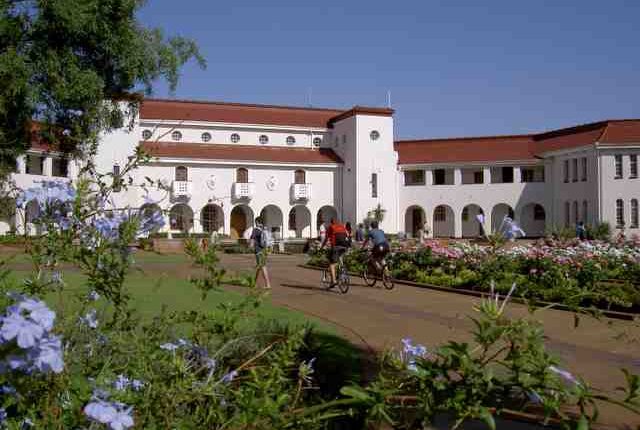North-West University academic reflects on her B2 National Research Foundation (NRF) rating in 2022
To be compelled to pursue research and to be grateful. These sentiments are what Prof Susan Coetzee-Van Rooy, research professor at the North-West University (NWU), values when she reflects on receiving her B2 National Research Foundation (NRF) rating in 2022.
Prof Coetzee-Van Rooy is an NWU-grown B-rated scholar in languages – specifically multilingualism. Her track record proves that with the right support and guidance, humanities and social sciences scholars at our institution can obtain, maintain and systematically improve their ratings.
She is a research professor in the focus area known as Understanding and Processing Language in Complex Settings (UPSET) in the Faculty of Humanities. This is the ideal context for her work towards providing a better understanding of the nature of multilingualism among South Africans and in countries across the world.
“South African multilingualism is long-standing and unique owing to its size and shape,” Prof Coetzee-Van Rooy says.
“The world has only recently become aware of the benefits of being more generally multilingual. I am grateful to contribute towards the understanding of this important current phenomenon from a South African perspective, where being multilingual is the ordinary state of being.”
Good advice
According to Prof Coetzee-Van Rooy, the insight and support of her husband, Prof Bertus van Rooy (also a B2-rated scholar), made all the difference in this journey.
“Bertus was the first director of UPSET and set the tone for research trajectories in the group. His simple advice was to focus on an important research topic that has scientific, societal and personal relevance, and to regularly publish high-quality research in reputable outlets.”
Some of the most useful advice Bertus has given her is to spend two months every two years working in a focused way to analyse data sets and prepare publications from them. “These simple strategies facilitated the steady maintenance and improvement of my NRF ratings over time. The same advice also worked for scholars in UPSET and the Faculty of Humanities,” says Prof Coetzee-Van Rooy.
Going up in the ratings
She was one of the first group of humanities and social sciences researchers who received NRF ratings in 2002, when she was awarded a Y2 rating. Her father-in-law, Herrie van Rooy, also obtained his first rating in that session. He is a retired research professor from the NWU and also currently a B-rated scholar. Prof Coetzee-Van Rooy made the transition to a C2 rating in 2010 and to C1 in 2016.
She says her rating history is unusual, as many scholars in humanities and social sciences do not easily make the transition from Y2 to the C categories. “I believe that the NRF rating process has changed the game for scholarship in the humanities and social sciences and I am a supporter of the process because it fosters focused, high-quality research in a continuously engaged way.
“I am not special. If I can obtain and maintain a rating, any responsible and committed scholar in the humanities and social sciences can,” says Prof Coetzee-Van Rooy.
She has served as a member and convenor of the NRF scientific committee for Literary Studies, Languages and Linguistics, as chair of NRF evaluation and rating panels and as member of the executive evaluation committee (EEC) during the period 2014 to 2021.
In 2021, the CEO of the NRF, Dr Gansen Pillay, praised Prof Coetzee-Van Rooy’s contribution to NRF evaluation and rating panels and the EEC. He singled her out for her thoroughness, dedication, commitment and insightful participation and constructive engagements “which enabled us to simplify decision-making”.
“One of the most fulfilling parts of my current work at the NWU is to support all scholars in humanities and social sciences to prepare for NRF rating applications,” she says.
More about the researcher
Prof Coetzee-Van Rooy was born and raised in Potchefstroom and acknowledges the role of her father, Hansie Coetzee, in creating space in their family for difficult conversations. Hansie was an internal auditor at the NWU and he taught his children to trust, but verify. This approach inculcated a research-minded orientation in her from a very young age.
In the safe spaces created in her family, she was compelled to ask questions, find and evaluate information and bring a substantiated and personal view to discussions in which she and her father often did not agree. “This approach to information fostered by my father was an excellent preparation for me to honour the obligation that all researchers bear: to continue to ask fundamental questions and to find empirical answers to these questions,” says Prof Coetzee-Van Rooy.
In her opinion, the importance of a supportive family environment in the development of research-minded people cannot be over-emphasised. She remains grateful to her family for their support.

